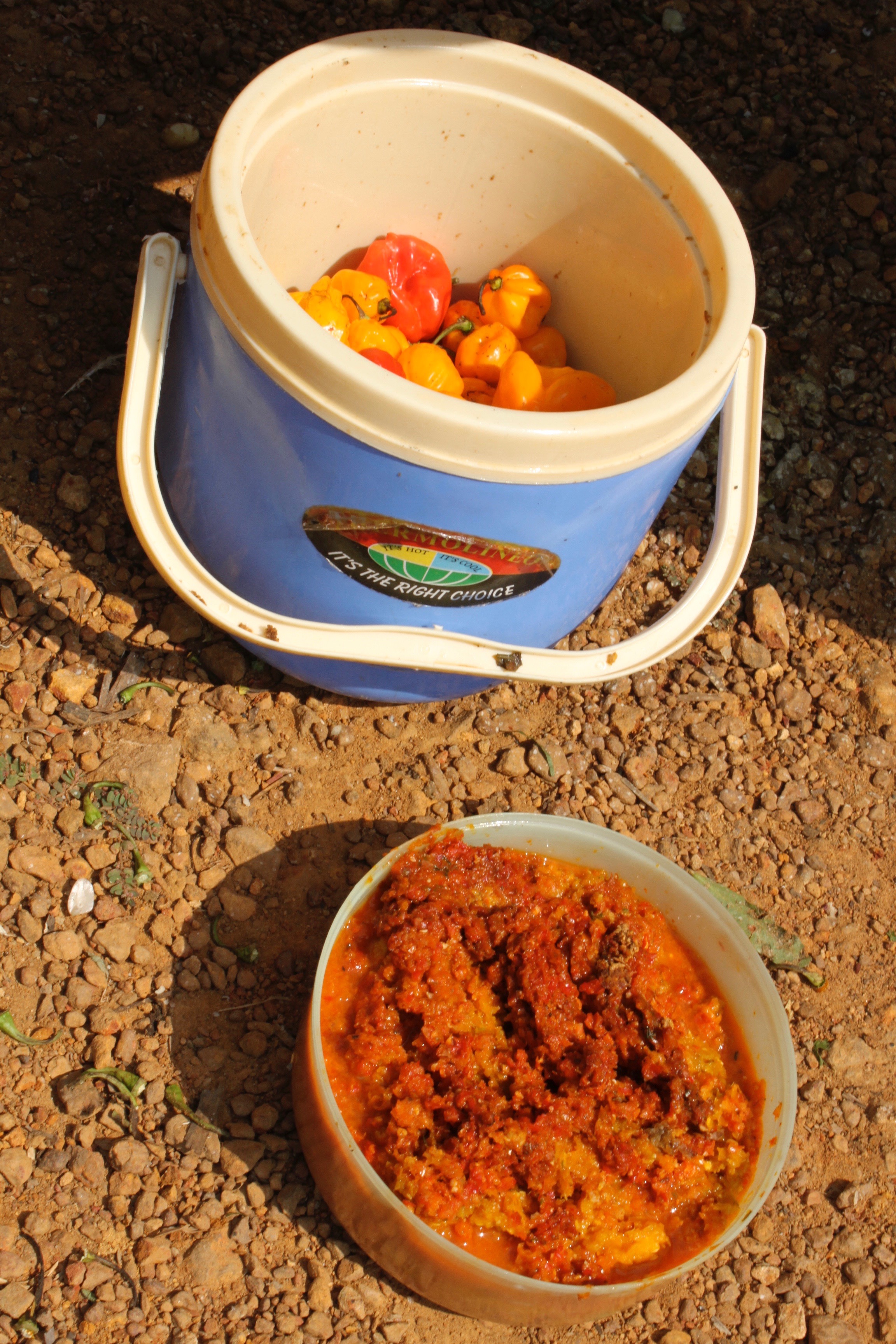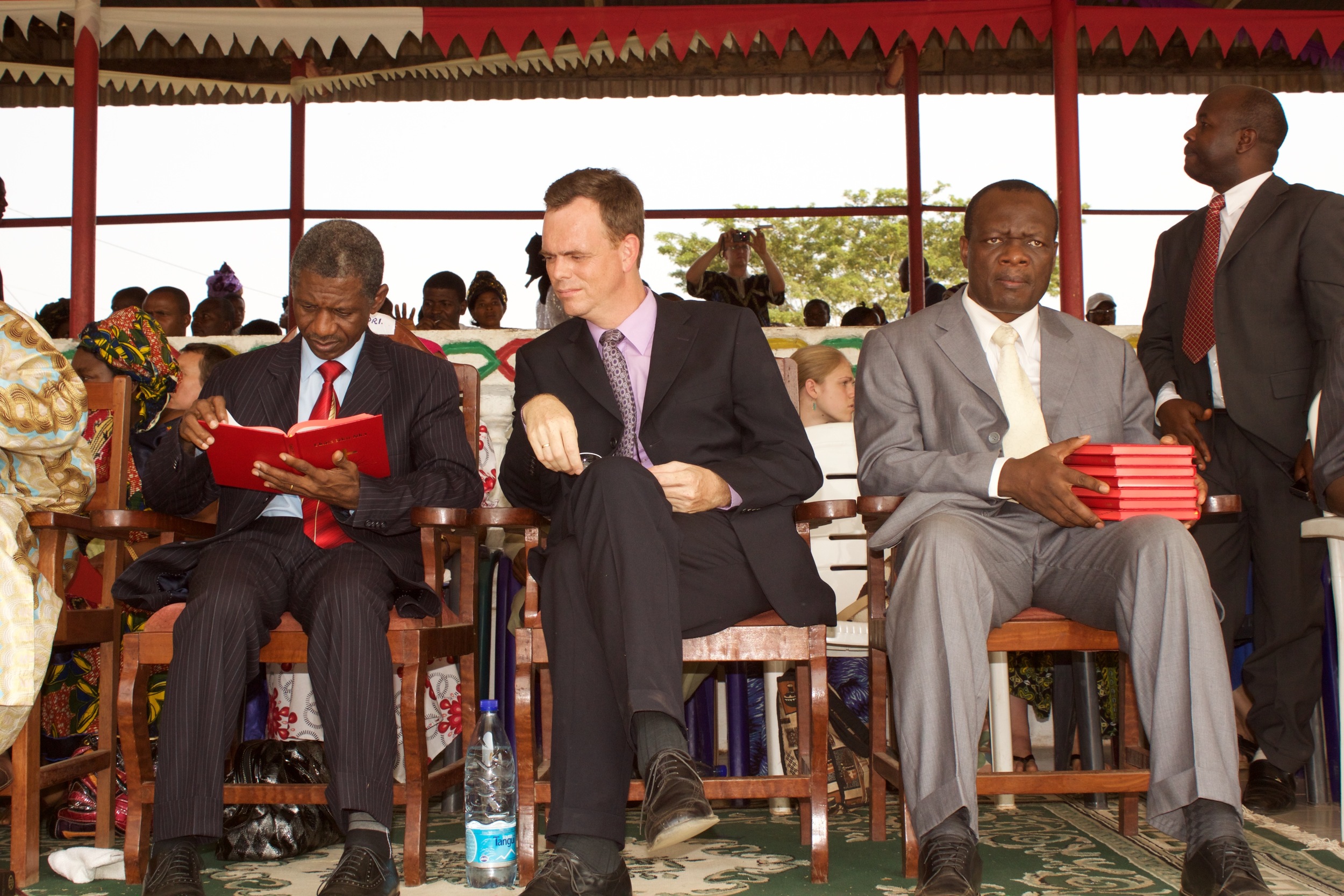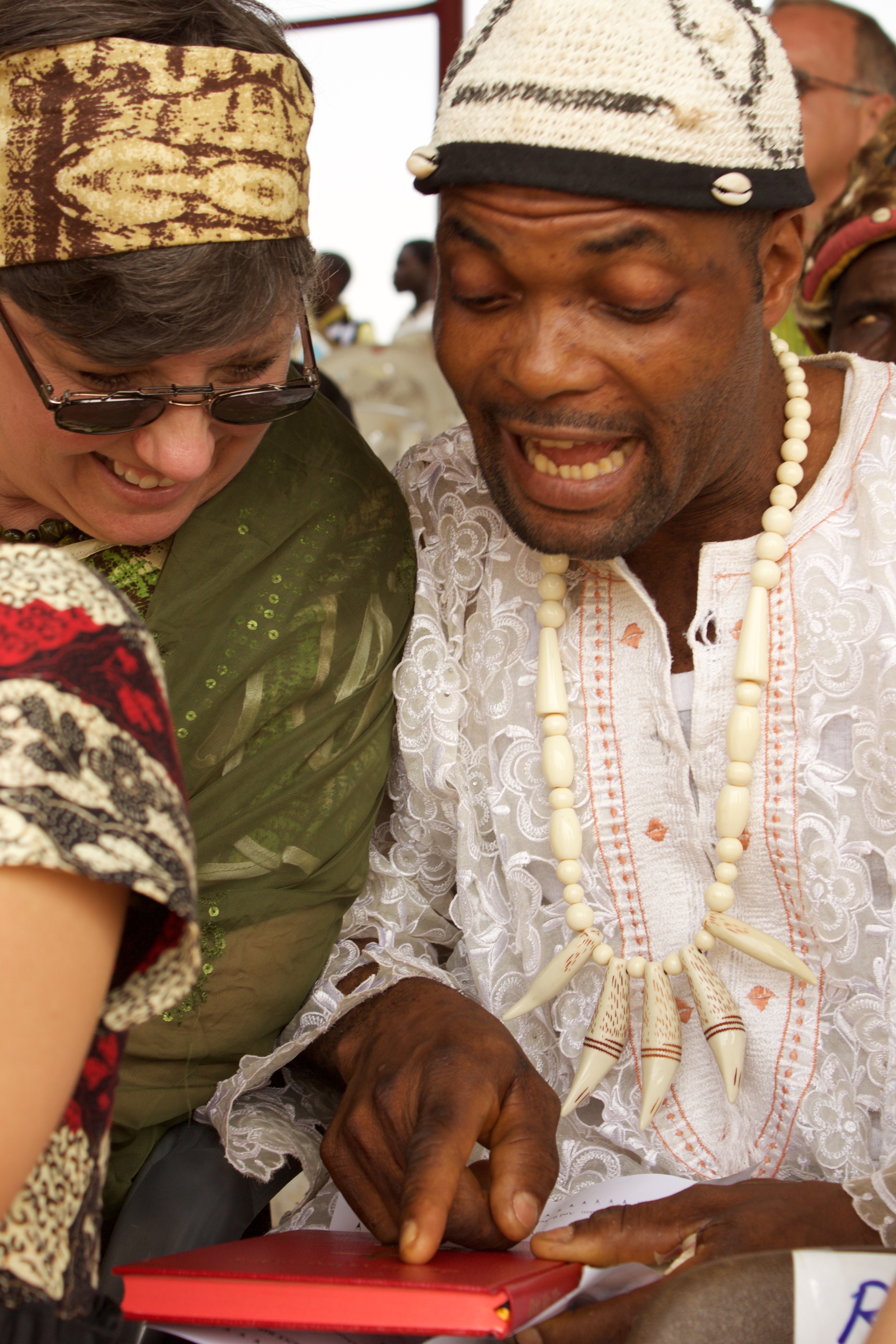I had started a cooking blog, then realized that my ISP is blocking it, then also realized that I've been remiss in posting on my regular blog, so I decided to combine the two a bit. I'll try to share a bit of my daily life through the food that I've been cooking and the people that I share it with. Enjoy!
I've been experimenting with various starches here, trying to learn to cook with ingredients from the market. After cooking with plantain, I fell in love and began mashing, frying, and boiling them in everything I could think of. This week I finally decided it was time to move on, so I asked my house help, Camilla, to get some manioc from the market. I've seen and cooked with manioc before; it comes from the Andes and is also called yucca. Here, the root is also known as cassava, and as a Cameroonian told me, it is all starch.
I asked for $1 worth of manioc from the market, and wasn't quite expecting what I found when I came home from school. Camilla had returned with what must have been at least five pounds of large brown roots. My roommate asked me if I knew how to prepare the manioc properly, mentioning that it had cyanide on it. ¡Whoa! I didn't realize that could be a problem. Previously, I had cooked with waxed manioc, so perhaps it had already been processed somehow. Concerned, I left a note for Camilla asking if she could explain how to cook this delicious root. What follows is her response:
How to cook manioc: you first take off the skin, then you grate the backs of the manioc a little with a knife before you boil it. (She left me an example in a bowl). You don't have to leave manioc for many days because they can go bad. When you buy it, cook the very day or the next day. Well Megan, I hope when you read this you will understand.
I did understand and followed her instructions, and my bicep is a bit sore from cutting off the tough outer peel—Cameroonian women must be very strong! After peeling, I cut it into big chunks, washed them in a bowl of water, and then boiled them in a large pot. Once they were falling apart, I drained them and let them cool. I tried to pull out the tough fibers in the center (although I missed a couple and had to pick them out as I ate). The next day (for no particular reason other than that was when I had time) I added a cup of water to the pot, brought it to a simmer and used a potato masher to turn it into a piecy paste. When it was stirrable, I threw it 1/2 cup milk powder, dissolved in two minced cloves of garlic and 1/2 of water (those of you in the States might want to try a combination of butter and cream—really, any fattening dairy product should work). I let it simmer until the milk seemed to be absorbed and served it warm. Although the dish isn't typical of Cameroon, my Cameroonian friends seemed to enjoy eating this Ecuadorian side dish, and I'm excited to have lots of leftovers! This is a great dish for anytime when you want to make sure that no one will leave hungry—it's cheap, but very heavy.
In shorter recipe form:
Mashed Manioc/Yucca/Cassava
2-3 manioc roots
3 cloves garlic, minced
1 cup whole milk
Peel the manioc, getting rid of all of the purplish exterior pieces, then cut it in chunks. Wash the chunks in water. Add them to a pot and bring to a boil. Let simmer until the manioc is tender and falling apart. Drain and let cool. (One traditional Cameroonian dish would stop at this step and serve the root still warm.)
When cold enough to handle, pull the chunks apart into large pieces, removing any tough fibers that you find. Return to the pot and place over low heat. If the chunks are still fairly warm and soft, add the garlic and milk directly. Mash until it forms a soft paste. Serve warm.

























